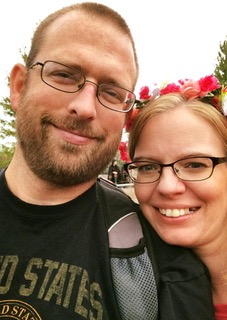This letter was presented at the committee's opening meeting (8/31/2017).
Dear Members of the US DEPARTMENT OF HEALTH AND HUMAN SERVICES INTERDEPARTMENTAL SERIOUS MENTAL ILLNESS COORDINATING COMMITTEE:
We, family members of the 4% who have a serious mental illness, would respectfully like the opportunity to supply you with a rebuttal to Elyn Saks' article, “CONSENT DILEMMA: It’s hard to keep mental-health patients on their medications. Would it help to let them say 'no?'" published in Politico on August 9, 2017.
We’d also like to respectfully remind you the reason the US Department of Health and Human Services Interdepartmental Serious Mental Illness Coordinating Committee exists is that we, the family members of the 4%, along with Representative Timothy Murphy, Representative Eddie Bernice Johnson and her 206 fellow cosponsors of the “Helping Families in Mental Health Crisis Act,” decided to speak out and get real about serious mental illness and the horrific suffering, death, and criminalization of our loved ones.
Please read the gut-wrenching comments (attached) sent in to Teresa Pasquini’s “Shattering Silence” campaign (https://www.change.org/p/mary-gilberti-and-nami-board-of-directors-join-families-advocates-of-the-4-in-shattering-silence-about-serious-mental-illness). You’ll see that many of our loved ones are homeless, jailed, tortured in solitary confinement, committing suicide, and being brought out of prison in body bags.
Approximately 50% of individuals with schizophrenia, and 40% with bipolar disorder have symptoms of anosognosia, or a lack of insight into their illness. Anosognosia is the single largest reason why people with schizophrenia and bipolar disorder refuse medication or do not seek treatment at all.
We acknowledge that, with treatment, some people are able to regain insight into their illness and accept treatment. However, as many as 50% of those with schizophrenia and bipolar disorder never do.
One example of the 50% who don’t ever regain insight is Jeanne Gore’s son. He has schizoaffective disorder and has been hospitalized 43 times over the past 13 years. All but one of those hospitalizations was involuntary because he has no awareness of his illness. He’s been jailed twice, homeless, missing, and beaten up by police and members of the community. When Jeanne got AOT legislation passed in Maine, she was finally able to see her son living successfully in the community. He’s an artist and a musician with a brilliant mind and a generous heart who is now in his own apartment living a good life. As long as he has a court order for treatment, he’ll continue to take medication, all the while insisting that he does not have a mental illness.
Joy Torres, who suffers from schizophrenia, is a consumer and a family member with children who also have schizophrenia. She says,”Being forced to take my medication saves me and all around me. Not being forced would be life threatening.”
Let’s look at the facts:
Prevalence and Treatment Rates*
- 8.1 million adults with schizophrenia or bipolar disorder mental illness (3.3% of the population)+
5.4 million — approximate number with severe bipolar disorder (2.2% of the population), 51% untreated+
2.7 million — approximate number with schizophrenia (1.1% of the population), 40% untreated+ - 3.9 million — approximate number untreated in any given year (1.6% of the population)+
Consequences of Non-treatment*
- 169,000 homeless people with serious mental illness**
- 383,000 inmates with mental illness in jails and prisons
- 50% — estimated percentage of individuals with schizophrenia or bipolar who attempt suicide during their lifetimes
- 10% — estimated percentage of homicides involving an offender with serious mental illness
(approximately 1,425 per year at 2014 homicide rates) - 29% — estimated percentage of family homicides associated with serious mental illness
- 50% — estimated percentage of mass killings associated with serious mental illness
* Numbers and percentages of US adults
+National Institute of Mental Health, 2016
**2015 Annual Homeless Assessment Report
Would you deny treatment to someone who suffered a stroke, was having a heart attack, had Alzheimer’s disease or was otherwise incapacitated? No. We argue that not treating those who are too sick to consent to treatment carries the potential of much greater harm than giving involuntary or, better yet, nonvoluntary treatment.
Dominic Sisti, PhD, an assistant professor of Medical Ethics & Health Policy at the Perelman School of Medicine at the University of Pennsylvania, recently proposed a new category for psychiatric patients to justify instances of compulsory treatment.
"The current strict limitations on involuntary treatment risk allowing people with psychiatric illness to go untreated and experience worsening symptoms despite compelling evidence that they would want to be well," said Sisti. "A patient may have previously expressed a wish to be treated while in crisis—in which case, a treatment framed as involuntary is actually something else. The proposed concept of nonvoluntary treatment provides a more precise categorization of such cases."
Patients covered by this concept would include those who have expressly indicated a desire to be treated when needed, those who have been living successfully in recovery from mental illness and clearly wish to continue doing so, and those who have difficulty escaping severe drug addiction despite an evident wish to become addiction-free.
The "nonvoluntary" category could also cover patients presenting with their first psychotic episode—due to undiagnosed schizophrenia or bipolar disorder, for example—who essentially have no idea what is happening to them.
The evidence to justify nonvoluntary treatment could include advance directives already provided by the patient to caregivers, as well as testimony from family members, case managers, and primary caregivers — and even the patient's own social media posts.
The nonvoluntary treatment concept would still involve a degree of ethical risk, as the evidence of a patient's authentic wishes might be ambiguous. “But,” Sisti said, “this challenge is not much different from those found in other areas of medicine where a patient seems incapacitated and caregivers and family members must use their own judgment concerning patient care. Moreover, there is potentially much greater harm in not treating these very sick patients compared to providing nonvoluntary treatment.”
In conclusion, we’re promulgating making it easier, rather than harder, to access appropriate treatment and care. Please reply and continue this discussion with us. We’d appreciate hearing your thoughts about 1) Treating those who are too sick to consent to treatment; 2) A nonvoluntary treatment concept.
Thank you for your service.
Respectfully Submitted,
Jeanne Gore, advocate, mother of someone with a serious mental illness, President, Families for Treatment of Serious Mental Illness, “We Are Their Voices” https://www.youtube.com/watch?v=Khbkifi47Ig http://www.treatsmi.org
Teresa Pasquini, Recovering Angry Mom & Co-Founder Mental Illness FACTS, Family and Consumer True Stories
Dede Ranahan, soonerthantomorrow.com A Safe Place to Talk About Mental Illness in Our Families
Co-signers:
Joy Torres, mother and someone with a severe MENTAL illness not a simple mental health issue, Chair of Membership, Families for Treatment of Serious Mental Illness
Mary Murphy, a mother in Springfield Oregon
Candy DeWitt, Voices of Mothers and Others
Martie Rhoden Bessler, Mother and Advocate for son and others with SM
Ray and Connie Maternick, parents of a son who struggles with SMI
Laura Pogliano, Director, Parents For Care, Baltimore, MD
Kathy Day, MPA, family member of 25 year old with treatment-resistant paranoid schizophrenia
Cheri VanSant, mother to adult son with bipolar disorder with psychosis in mania/anosognosia. Only after involuntary treatment was my child stable long enough to stay out of a hospital for the last two years. It took 18 years with a lot of lost cognition to make that happen. 18 lost years.
Ruth Medina, M.S. Rehabilitation Counseling, sibling of person with mental illness
Anne Francisco, bereaved mother of son who deserved treatment but got incarceration and death
Wendy Brown, mother of a son with bipolar with psychosis and OCD
Sandra Turner, Mother of 23 year old Son who desperately sought treatment in Plattsburgh NY, was Sent Away, and dove headfirst into a freight train less than two hours later
Diann King, a family member of a loved one with a brain disease
Marcie Sohara, mother to a beloved son with a brain disease
Lisa Powell, a family member of a loved one with SMI
Dan West, Father of a son with a brain disorder
Kimberlee West, Mother of a son with a brain disorder. Also Sister of a smi brother who committed suicide
Laurie S. Turley, family member of a loved one with serious mental illness
Kenneth O. Turley, family member of a loved one with serious mental illness
Roseann Pruett, Mother of twins and widow of SMI
Angie Geyser, mother and advocate for child with SMI
Alison Monroe, mother of a dual-diagnosis person with schizophrenia
Nina McDaniel, mother and advocate for Son with Schizophrenia from Oley, PA
Janet Hays, President – Healing Minds NOLA
Amanda Woodward, PMHRN-BC, advocate for the seriously mentally ill
Sabrina Barton, mother of a child with SMI
Gloria Hill ,Florida Guardian Advocate, have son with serious psych brain disease
Anthony and Cynthia Hernandez, TTT.transformingtreatabletragedies.org
Lynn Nanos, LICSW, Mobile Psychiatric Emergency Clinician
Sylvia Mascareno Charters, MOMI of Florida, son with bipolar with psychosis
Susan Inman, family caregiver
Helen Rees, RN, psychiatric nurse and advocate for the seriously mentally ill
Heather McKenzie, Mother, Mental illness advocate
Ruth Johnston, mother of incarcerated schizophrenic son








